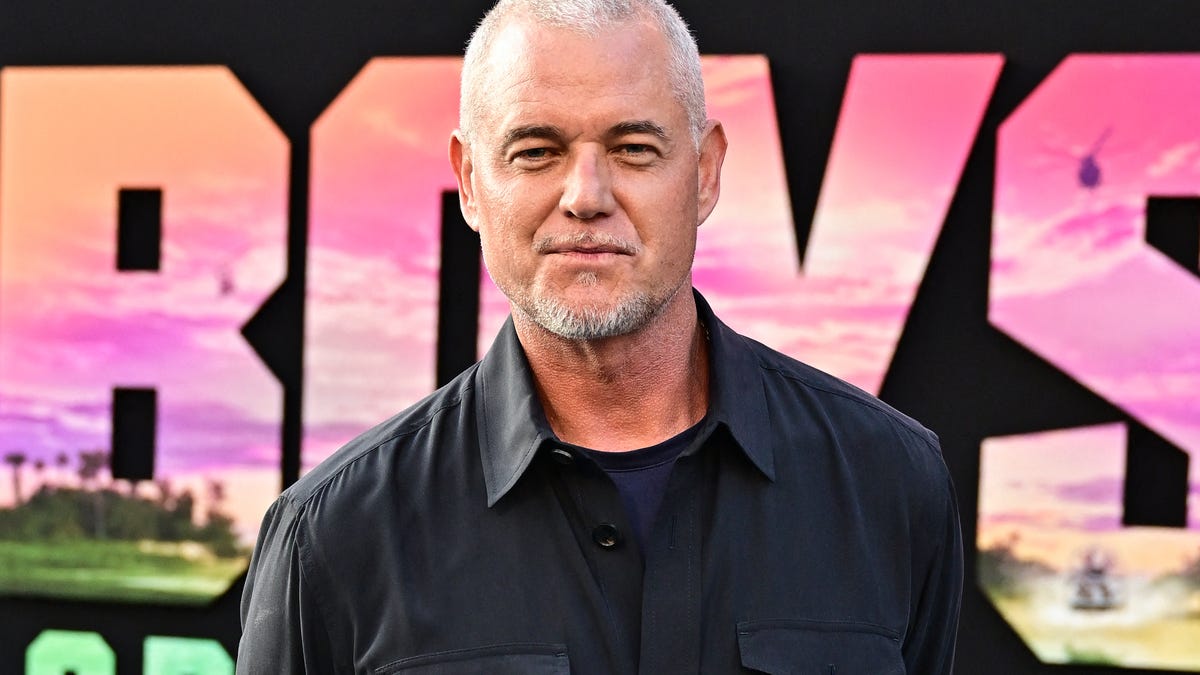Eric Dane isn’t letting his health challenges slow him down.
The “Grey’s Anatomy” alum, 52, revealed he’s been diagnosed with amyotrophic lateral sclerosis, also known as ALS, in an exclusive statement to People magazine.
The award-winning actor, who currently stars on the HBO teen drama “Euphoria” said he’s “grateful to have my loving family by my side as we navigate this next chapter.” Dane is married to actress-model Rebecca Gayheart, with whom he shares two children.
“I feel fortunate that I am able to continue working and am looking forward to returning to (the) set of ‘Euphoria’ next week,” Dane told People. “I kindly ask that you give my family and I privacy during this time.”
ALS, commonly called Lou Gehrig’s disease, is a rare degenerative disease that can impact the brain and spinal cord. Other stars who’ve battled ALS include late R&B singer Roberta Flack, world-renowned physicist Stephen Hawking, “SpongeBob SquarePants” creator Stephen Hillenburg and former U.S. Vice President Henry A. Wallace.
Here’s what else to know about the condition, including its symptoms and methods of treatment.
What is ALS?
According to the National Institutes of Health, ALS progressively degrades, then kills nerve cells in the brain and spinal cord.
It’s commonly called Lou Gehrig’s disease, named after the famous baseball player who got the illness and had to retire in 1939.
It’s a noncommunicable disease, and cases are not reported to federal health officials. The Centers for Disease Control and Prevention conducts surveys to study how common it is.
According to one of the most recent surveys published about the disease in 2017, there were between nearly 18,000 and 31,000 cases of ALS in the United States.
What are the early signs of ALS?
ALS is found equally among men and women.
About 5-10% of ALS cases occur within families, according to the CDC. This is called familial ALS, and it means that two or more people in a family have ALS. These cases are caused by several inherited factors.
Signs and symptoms of ALS — and the order they occur — vary from one person to another.
According to the ALS Society of Canada, potential early signs of the disease include tripping, dropping things, slurred or “thick” speech, difficulty swallowing, weight loss, decreased muscle tone, shortness of breath, increased or decreased reflexes and uncontrollable periods of laughing or crying.
What are the symptoms of ALS?
Potential early symptoms include:
- Feeling weak
- Fatigue
- Muscle cramping or twitching
- Muscle stiffness or rigidity
Over time, the muscle weakening will continue to spread throughout the body, eventually causing difficulties with breathing, chewing, swallowing and speaking.
The senses of sight, touch, hearing, taste and smell are usually not affected, and for many people, muscles of the eyes and bladder remain functional until very late in the disease, according to the ALS Society of Canada.
It is not known what causes most cases of ALS, but some inherited factors have been found to cause familial ALS.
Other factors that scientists are studying to find links to ALS include environmental exposures, diet and injury, according to the CDC.
Is ALS curable?
So far, a cure has not been found for ALS.
People with ALS live from 3 to 5 years after symptoms develop, according to the CDC. How long a person lives with ALS seems to be related to age; people who are younger when the illness starts live slightly longer.
People with familial ALS typically live only one to two years after symptoms appear, the CDC reports.
Are there treatments for ALS?
While there is no cure for ALS, there are treatments that can slow the progression of the disease.
The drug riluzole, marketed under the brand name Rilutek, was the first treatment approved by the Food and Drug Administration. The drug was approved in 2017. A glutamatergic antagonist, it’s a disease-modifying treatment shown to extend life in patients with ALS, associated with a 35% reduction in mortality.
Edaravone, sold as Radicava, was approved in its pill form by the FDA in May. A third treatment is Amylyx Pharmaceuticals’ Relyvrio, which the company announced was approved by the FDA in September 2022.

Leave a Reply